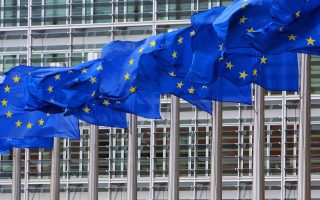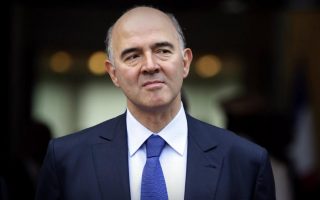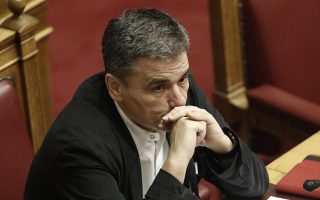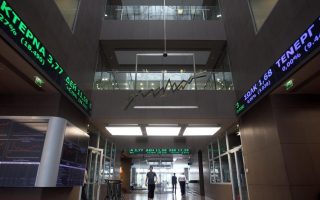Review must be wrapped up with IMF on board
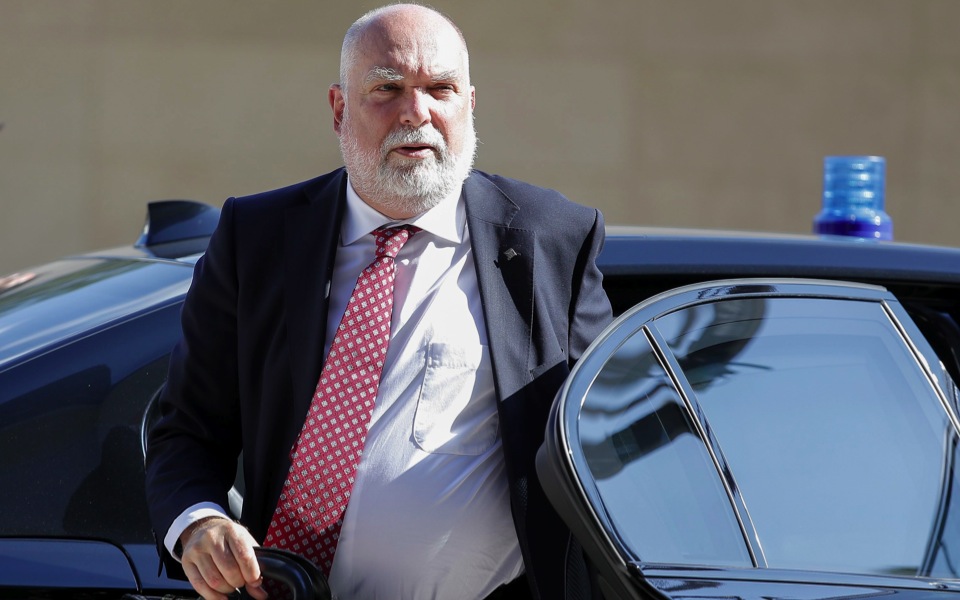
The man who has closely monitored, planned and negotiated over the Greek program from day one, and knows it better than most, is Austrian economist and head of the Euro Working Group Thomas Wieser.
Wieser is a key figure in the Greek program as he and his team of technocrats – one from each eurozone member – prepare the Eurogroup meetings and, in many cases, decide whether or not to green-light proposals.In this interview with Kathimerini, he talks about the significance of the International Monetary Fund’s involvement in the Greek program, why the review has to be concluded as quickly as possible, if debt relief is necessary and why Greece is the only country that has been in an adjustment scheme for six years.
Is it possible the IMF might not participate in the continuation of the program?
When we started the third program in the summer of 2015 the conditions were judged not to be right for the IMF to immediately join into the program. Nevertheless the euro-area member-states agreed to have a first tranche of up to 26 billion euros available because of the urgency of the situation.
But it was made abundantly clear – it was mentioned in the Eurogroup statement of mid-August and l think also in the leaders’ statement in July – that a participation of the IMF in the context of the first review was a precondition for closing that review. We have heard very clear messages from a couple of member-states that their parliaments will not agree on the closing of the review unless they are completely certain that the IMF will join the program, such as Finland for example. I see no possibility of closing the first review without the IMF on board and this is not a matter of personal opinion or the opinion of EU institutions but a matter of fact that stems from the parliamentary processes in a couple of member-states.
Could the program continue without the participation of a member-state?
No the European Stability Mechanism rules are quite clear in that they require consensus of the member-states for the disbursements. If any one of the members-states were to oppose the disbursement we could not go ahead. We require from each and every country where it is necessary that the government goes to parliament to get an approval. Only then can the ESM board of directors actually give the green light for the money to flow.
Why is it so crucial to close the review as soon as possible considering there are no hard payments due in the first half of 2016?
You could say that there are no large repayments for the first half of 2016, but there are very significant arrears of the Greek government to others sectors of the economy up to 6 billion euros. So disbursements out of the program will put the Greek government in a position to clear these arrears and, in my view, it is one of the two things that are totally necessary for growth to resume on a robust and healthy upward trend. One is clearing the arrears and [then] credit can flow back to the economy. It’s necessary to, one, recap the banks and, two, to clear the nonperforming loans (NPLs) from bank balance sheets at a more accelerated pace that has not been possible till now.
A main reason why it is very desirable to rapidly finalize the second review is that there is quite a number of obligations to the IMF due in the first half of 2016. Furthermore, it appears politically expedient to come to this agreement with the institutions well before the summer, ideally in February. This would clear the field for Athens so that it can concentrate on its own policy agenda. Negotiations with institutions and member-states generate a lot of political tension. Once the second set of prior actions has been voted in Parliament and the first review has been completed, a very significant part of the program requirements will have then be fulfilled. It is also necessary if Greece wants to return to the markets well within 2016. For that to happen, a precondition is the completion of the first review.
Do you feel that if Greece keeps delaying implementation of the program, the atmosphere could change?
Indeed, working [with Greek authorities] has improved a lot since the summer. [Finance Minister Euclid] Tsakalotos is a very capable representative of Greece’s policy interests and at the same time he has established good working relations with institutions and the president of the Eurogroup [Jeroen Dijsselbloem]. I’m sure this will continue.
You don’t appear worried about recent statements concerning IMF involvement in the program or leaks about the Commission’s intervention in education reforms. Don’t you think that all this is creating a negative atmosphere, or is it a case of the Greek media making a fuss?
In Greece, where there is a small fire the media creates a huge heat around issues that don’t generate enough fire to fry even a hamburger.
Have there been discussions on debt reduction?
There have been numerous technical discussions on how to approach the issue of debt and a variety of models have been examined, but as the first review has only started with first cautious steps there has not yet been a very concerted effort to come to an agreement of the main parameters of debt relief.
Why is that the case?
If you want to analyze the development of Greek debt over the coming years you need to know the outcome of the first review. The outcome is of vital importance in depicting the fiscal path of 2016-18 and beyond and also of vital importance in forecasting growth and productivity growth and competitiveness growth in Greece. These two together will determine growth and fiscal developments in Greece over the next decade. When these are known then we’’ know what kind of debt-related measures could be used.
Do you think it would be super-important to have debt relief at this moment?
For two reasons: One, it has been agreed. Second, it facilitates over the medium-term a return to the markets as an issuer of debt at a reasonable price. It facilitates it but is not the sine qua non.
You have followed this program from the very beginning as you have done with all other program countries. Why has Greece been unable to complete it?
In all countries facing economic problems there is a tendency to put a large part of the blame on foreigners. There are varying degrees at which one can look at their own policy mistake. Such introspection is something no country is super-good at, but some are better than others.

